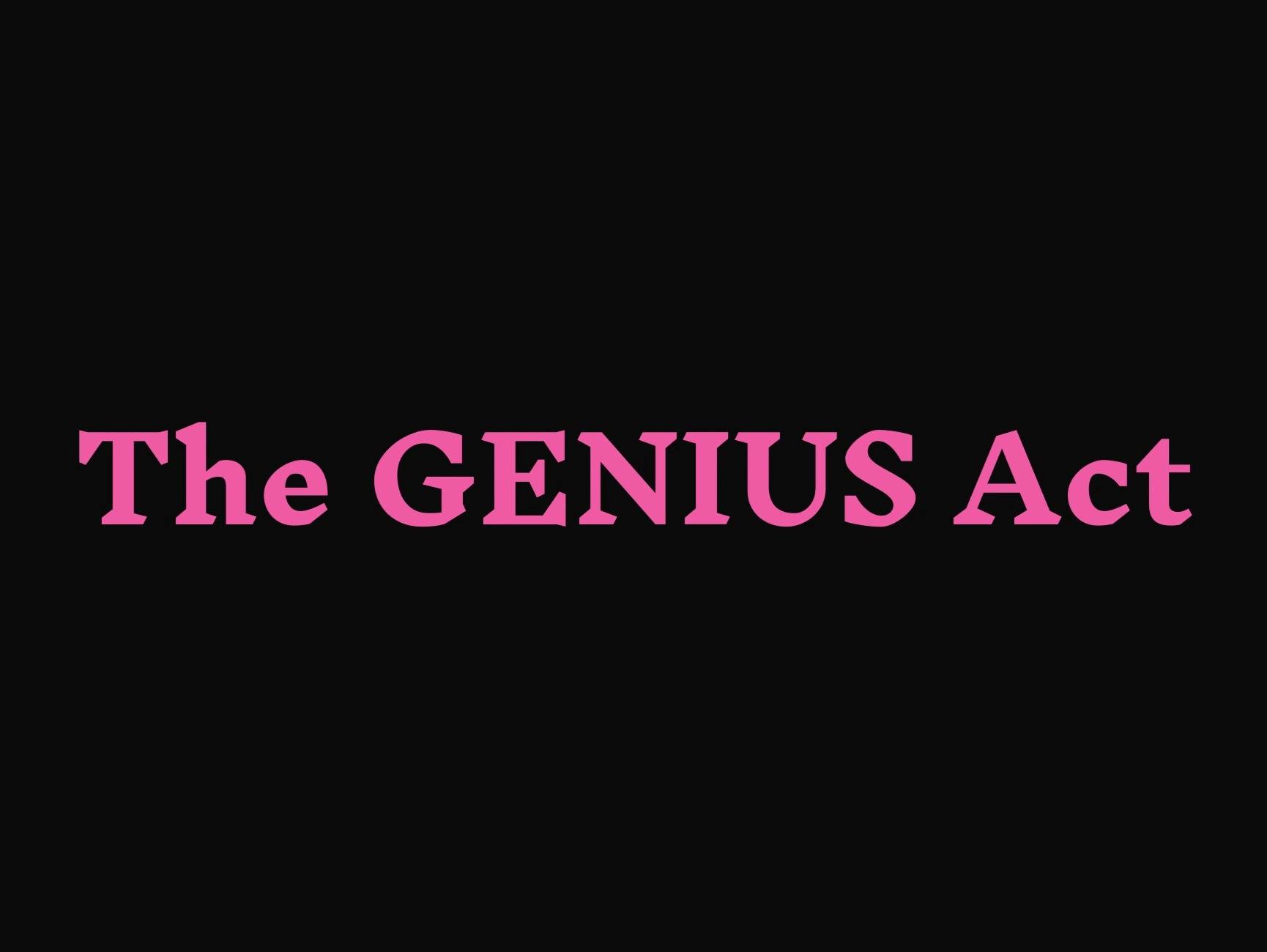订阅 wiki
Share wiki
Bookmark
GENIUS Act
0%
GENIUS Act
《GENIUS法案》(指导和建立美国稳定币国家创新),正式名称为S. 1582 [1],是一项具有里程碑意义的美国立法,旨在为稳定币建立一个全面的联邦监管框架——稳定币是一种通常与法定货币(如美元)挂钩的加密货币 [2]。该法案主要由参议员比尔·哈格蒂(田纳西州共和党)发起 [1][4],于2025年6月17日在参议院以68票对30票获得通过[2][3][5],并于2025年7月18日由特朗普总统签署成为法律。 [7]
它代表了美国在监管稳定币方面的重要联邦努力,被认为是朝着更广泛的加密货币监管迈出的一步 [2] [3]。
背景
稳定币已成为加密货币生态系统中不可或缺的一部分,提供价格稳定并促进数字交易。然而,稳定币市场的快速增长(目前市值超过2500亿美元)引发了人们对金融稳定、消费者保护以及缺乏明确监管框架的担忧 [2] [3]。
《GENIUS法案》旨在通过为稳定币的发行和监管提供结构化的方法来解决这些问题,从而加强监督并提高投资者对数字资产领域的信心 [2] [3]。
主要条款
《GENIUS法案》概述了几个关键组成部分:
- 许可发行人:只有被批准为“许可支付稳定币发行人”的实体才能在美国发行稳定币。这包括联邦监管实体,如货币监理署(OCC)特许的未投保国家银行、某些联邦分支机构和国家信托银行 [8]。国家信托银行是被允许在所有50个州运营的金融机构,主要提供托管和资产管理服务 [8]。
- 储备金要求:发行人必须维持1:1的储备金,以高质量的流动性资产(如现金存款和短期美国政府证券(如国库券))来确保按票面价值赎回。该框架明确排除了依赖复杂的市场交易来维持其挂钩的算法稳定币和合成美元 [8]。
- 反洗钱(AML)合规性:发行人必须遵守反洗钱和打击恐怖主义融资协议,以防止非法活动。
- 消费者保护:如果发行人破产,该法案将优先考虑投资者偿还,旨在保障消费者利益。
- 监管监督:商品期货交易委员会(CFTC)被授予对数字商品现货市场的管辖权。该法案还授予财政部广泛的权力 [3]。在该法案通过后,CFTC更新了其指导意见,以符合新法律,正式承认了更广泛的发行人范围 [8]。
- 利益冲突条款:该法案包括禁止任何国会议员或高级行政部门官员在公共服务期间发行支付稳定币产品的措施 [2] [3]。然而,民主党人试图纳入一项禁止总统及其家人从中获利的条款的努力并未成功 [2] [3] [5]。
立法历程
最初,《GENIUS法案》由于党派分歧以及对潜在利益冲突的担忧而面临障碍,特别是与前总统唐纳德·特朗普参与加密货币风险投资有关 [2] [3] [5]。参议员杰夫·默克利(俄勒冈州民主党)是主要的批评者,他指责共和党人通过阻止禁止总统从此类风险投资中获利的努力来“橡皮图章特朗普的加密货币腐败” [3] [5]。
尽管存在这些担忧,但在修订和两党谈判后,由参议员哈格蒂发起的该法案 [1] [[4]](#cite-id-Mfycd9CB93]获得了动力。它于2025年6月17日在参议院以68票对30票获得通过 [2] [3] [5]。美国众议院随后于2025年7月17日以308票对122票通过了该法案 [[6]](#cite-id-JuKBK32Q13]。
2025年7月18日,唐纳德·特朗普总统在白宫东厅举行的仪式上签署了《GENIUS法案》 [7][[6]](#cite-id-JuKBK32Q13]。在签字仪式上,特朗普表示:“我保证我们将带回美国的自由和领导力,并使美国成为世界加密货币之都,而这正是我们所做的。” [[7]](#cite-id-kvgzAksWkV]
稳定币协议FRAX Finance的联合创始人Sam Kazemian表达了他对该法案的支持:
“一旦这项历史性法案上的墨迹干了,只有一个代币/项目将从中受益最多,那就是其整个路线图都是成为第一个获得许可的法定货币稳定币的项目。” - 他发推文说
他还发推文说:
“GENIUS法案意义重大,理解其影响的大脑认为整个市场应该重新定价。我同意,但现在想象一下一个集中的选择,其整个路线图都基于GENIUS法案后的格局。这值多少钱? 很少。”
$widget0 YOUTUBE@VID
$
影响
《GENIUS法案》的通过被视为美国数字资产监管的一个关键时刻。通过为稳定币建立明确的法律框架,该立法旨在:
- 通过减轻与不受监管的稳定币发行人相关的风险来增强金融稳定性。
- 通过提供监管清晰度来促进创新,鼓励加密货币行业内的负责任发展。
- 通过严格的储备金和合规性要求来保护消费者。
- 通过积极应对新兴金融技术带来的挑战和机遇,将美国定位为全球数字经济的领导者 [2] [3]。
颁布后的发展
在《GENIUS法案》颁布后,联邦机构开始使其法规与新框架保持一致。
2025年12月,联邦存款保险公司(FDIC)提出了商业银行如何通过子公司发行稳定币的框架。根据该提案,FDIC将监督母银行及其稳定币发行部门,以确保符合《GENIUS法案》关于抵押品和赎回的要求 [8]。
2026年2月,商品期货交易委员会(CFTC)发布了第26-05号工作人员信函,该信函修改并取代了其之前于2025年12月8日发布的指导意见(第25-40号工作人员信函)。此次更新明确是为了反映《GENIUS法案》下的新监管格局。关键的变化是扩大了许可支付稳定币发行人的定义,正式包括国家信托银行,CFTC市场参与者部门表示这是其最初的意图 [8]。
发现错误了吗?
